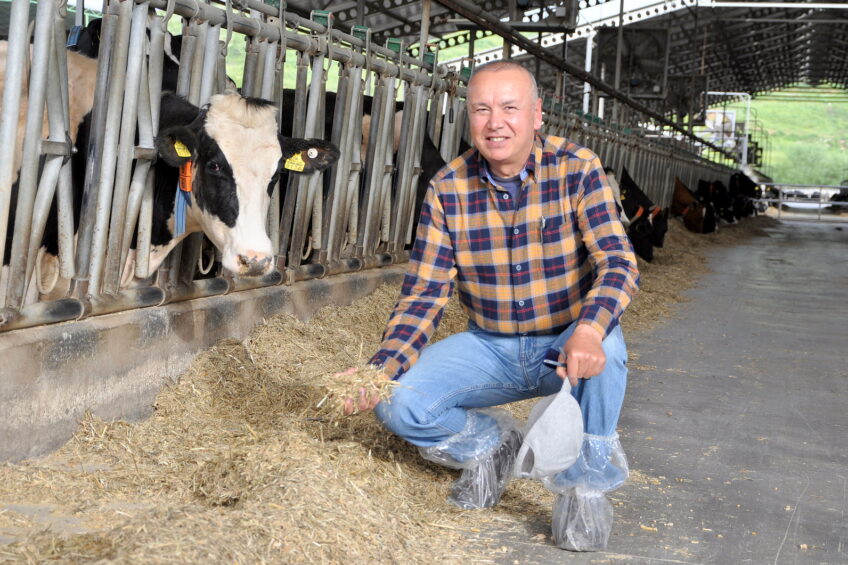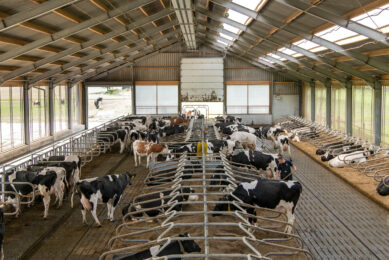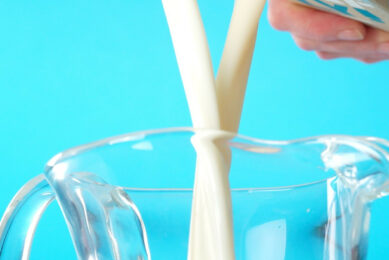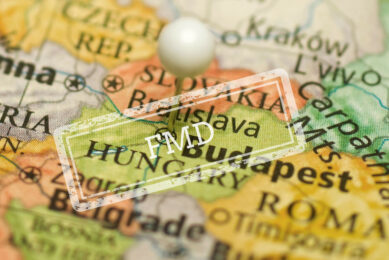Turkish government supports its dairy farmers

One of Turkey’s largest dairy farmers is making around €0.07 per litre profit on his milk and has big plans for the future.
Mehmet Dogan is currently milking 1,000 cows but intends to increase this capacity as well as start a number of new projects on his farm situated in the Izmir district in the west of the country.
Prosperous agriculture sector
Turkey prides itself in being one of a few countries in the world that are self-sufficient when it comes to providing food for its 76 million people.
With a favourable climate and a prosperous agriculture sector Turkey is currently trying to harmonise its farming practices with European Union standards in preparation for its ascent into the EU. A quarter of the population of Turkey are employed in agriculture and the sector, which is heavily supported by the Turkish government, exported over US$17 billion of produce last year. In terms of agricultural land, Turkey is also one of the largest countries in the world. About 35.5% of the country is used for arable production and 15% is forest. Some 24 million hectares of land was cultivated in 2015 with 18% of it requiring irrigation.
Consumption fresh milk is low
Last year’s figures show Turkey is the world’s biggest producer of hazelnuts, figs, apricots and raisins, the 4th biggest producer of fresh vegetables and grapes, the sixth biggest producer of tobacco, the eighth biggest producer of wheat, and the 10th biggest producer of cotton. The dairy sector in Turkey also performs a vital role in people’s diets. Although consumption of fresh milk is very low, people more often drink Ayran, which is a liquid salted milk drink. They also consume large quantities of yoghurt and a feta-type white cheese.
Large part is exported
The annual per capita consumption of milk amounts to 37.3 kg of milk equivalence, which is low compared to other developed countries.
With prolonged periods of heat in Turkey, a large percentage of their liquid milk production is exported in UHT form to Europe, the Middle East and the USA. A massive farm restructuring programme has been going on in Turkey since the 1980s but more recently in 2010 the Turkish Agricultural Bank offered long-term loans with zero interest rates for dairy and feeding cow breeders in order to support that sector. With that incentive, a number of large scale farms have emerged, as well as the number of dairy processing businesses, especially in the Izmir region, in the west coast of the country facing the Aegean Sea.
48 cows is big
Among the bigger of the dairy farms in the region is Titar Dairy Farm run by Mehmet Dogan, who has a range of other projects going on backed up by the Turkish government and other investors. This farm is currently milking 1,000 Holstein cows and has 2,000 more dry cows, heifer replacements and bulls for fattening. It’s quite a large scale operation with 48 cows being milked at a time cows in the Herringbone parlour. Deep wells keep the place supplied of water and some of the manure is used in the biogas plants to produce energy.
The cows are milked three times per day resulting in an average yield of 30 litres per cow per day. Mehmet has 50 staff on the farm with some of them involved in mixing the rations for the animals.
Cost of production
Milking cows are fed a mix of corn silage, alfalfa, soya, oil by-products, sunflower and barley. In total, it takes 30 tons of feed per day to feed the entire herd on Titar farm. The milk runs at 3.4% Protein and 4.2% Butterfat commanding a price of 1.2 Turkish Lira per litre (€0.35). Mehmet’s cost of production is around 0.95 Turkish Lira per litre (€0.28) leaving him with a profit of 0.25 Turkish Lira per litre (€0.07).
Strategy plan Turkish government
The Turkish government currently is running a strategy plan for agriculture until 2023 and is reforming subsidies to boost the industry. Each year the Turkish government pays over seven billion Turkish Lira to its farmers in the form of subsidies, including dairy farmers who receive around 0.09 Turkish Lira (€0.03) per litre. They pay around 50 Turkish Lira (€15.65) per head of cattle per year to assist with modernisation to EU standards and 200 Turkish Lira (€62.61) per head per year to help increase heard health by using vaccinations etc.
Mehmet has big ambitions for the farm with the help of investors. He said: “Our dairy farm is running well but we need to be careful of our costs. We have 200 acres here and are trying to increase that by buying more locally.
“I want to grow more crops for the dairy rations but I have ambitions to start a beef cattle unit here with slaughterhouse. “My target is to kill 20,000 head of beef cattle per year from Uruguay and Australia. I also want to start a breeding goat and sheep enterprise as well as an organic egg production unit with 5,000 hens. “The Turkish government supports us well but we need to improve more in order to meet EU standards in the future,” he said.
Join 13,000+ subscribers
Subscribe to our newsletter to stay updated about all the need-to-know content in the dairy sector, two times a week.

























